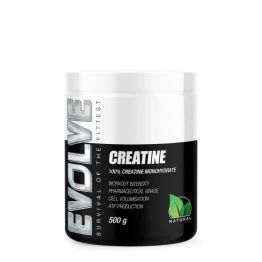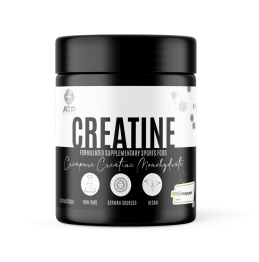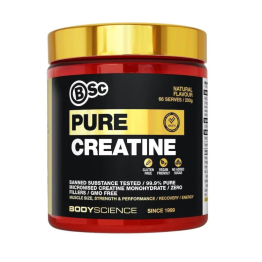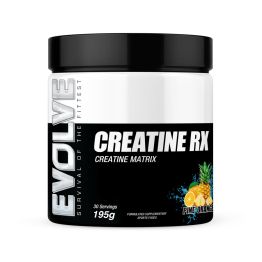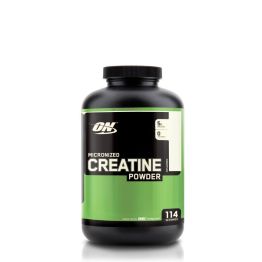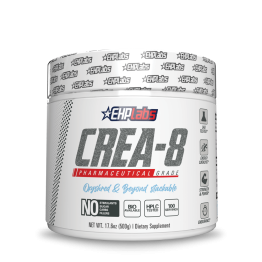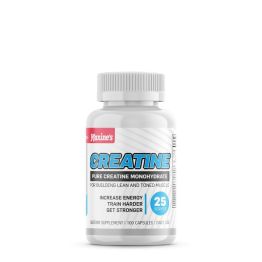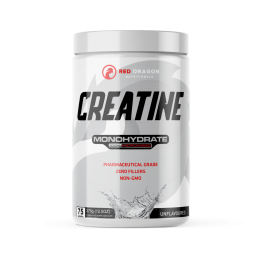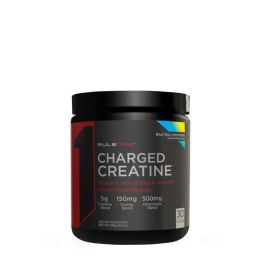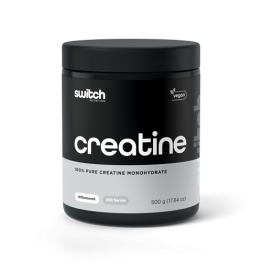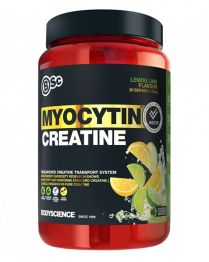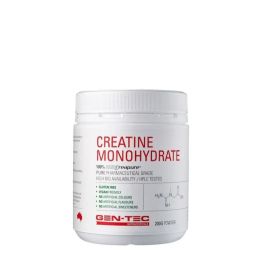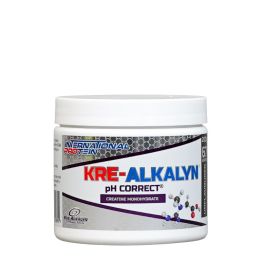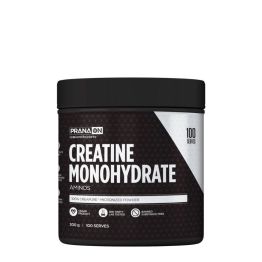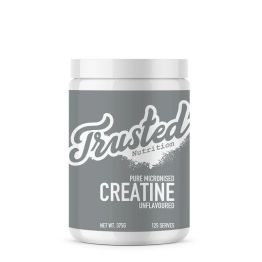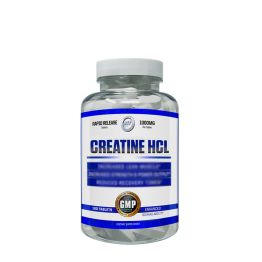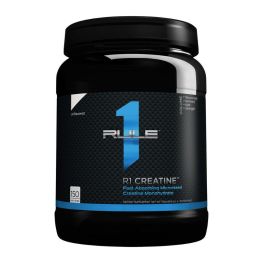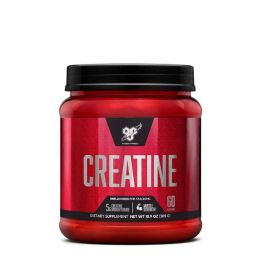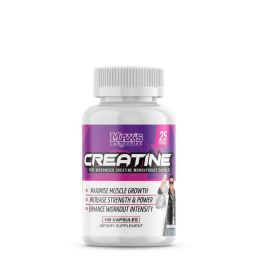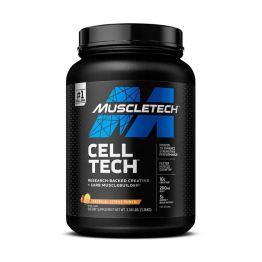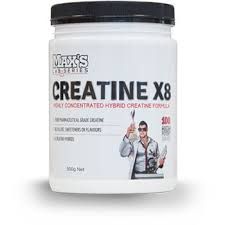FAQs About Creatine Supplements
Because of its muscle-increasing properties, Creatine supplements are very popular among athletes and bodybuilders. It can be used to help gain muscle, enhance strength and improve overall performance (Mawer, R. 2022).
Mawer, R. 2022, ‘Everything You Need to Know About Creatine’, Healthline, accessed 16 September 2022, https://www.healthline.com/nutrition/what-is-creatine
There are theories that a monohydrate is more soluble and may improve your body’s ability to absorb it. A monohydrate can increase strength while also increasing water content in your muscles (Tinsley, G. 2017).
Tinsley G. 2017, ‘Top 6 Types of Creatine Reviewed’, Healthline, accessed 16 September 2022, https://www.healthline.com/nutrition/types-of-creatine#:~:text=Creatine%20anhydrous%20is%20100%25%20creatine,to%20absorb%20it%20(22)
Creatine plays a crucial role in increasing the phosphocreatine stores in your muscles during high-intensity training. It also helps you to gain muscle by boosting your workload, improving your cell signalling, lifting your anabolic hormones, increasing cell hydration, reducing protein breakdown and lowering myostatin levels (Mawer, R. 2022).
Mawer, R. 2022, ‘Everything You Need to Know About Creatine’, Healthline, accessed 16 September 2022, https://www.healthline.com/nutrition/what-is-creatine
Watson, S. 2020, ‘An Overview of Creatine Supplements’, WebMD, accessed 16 September 2022, https://www.webmd.com/men/creatine#:~:text=Creatine%20is%20thought%20to%20improve,as%20weight%20lifting%20or%20sprinting
To achieve consistent results, Creatine can take up to 2-4 weeks to properly kick in. It’s important to be patient as your body adjusts to the intake of Creatine and remain consistent with your usage of the supplement (Rimmer, P. 2021).
The size of your dosages and the frequency in which you use it will also affect how long it takes you to start noticing results.
Muszalski, C. 2022, ‘The Best Time To Take Creatine | Before Or After A Workout?’, My Protein, accessed 16 September 2022, https://www.myprotein.com/thezone/supplements/the-best-time-to-take-creatine-before-or-after-workout/#:~:text=The%20best%20time%20to%20take%20creatine%20is%2030%20minutes%20before,muscles%20are%20growing%20and%20rebuilding
Rimmer, P. 2021, ‘How Long Does It Take For Creatine To Kick In?’, Performance Lab, accessed 16 September 2022, https://www.performancelab.com/blogs/nutrition/how-long-does-it-take-for-creatine-to-kick-in#:~:text=Creatine%20results%20kick%20in%20after,rather%20than%20addressing%20a%20deficiency
While there haven’t been many tests, evidence suggests that taking Creatine can increase muscle Creatine accumulation and enhance performance and strength when used consistently (Forsythe, C. 2020).
Forsythe, C. 2020, ‘Should Women Take Creatine?’ Girls Gone Strong, accessed 19 September 2022, https://www.girlsgonestrong.com/blog/articles/creatine-women/
Mawer, R. 2022, ‘Everything You Need to Know About Creatine’, Healthline, accessed 16 September 2022, https://www.healthline.com/nutrition/what-is-creatine
There is no link to steroids, and the International Society of Sports Nutrition have regarded it as one of the most beneficial sports supplements available (Mawer, R. 2022).
Collias, N. 2021, ‘Your Complete Guide To Creatine Monohydrate’, Bodybuilding, accessed 16 September 2022 https://www.bodybuilding.com/content/creatine-monohydrate-101-the-research-behind-a-phenomenon.html#what-is-creatine-monohydrate
Mawer, R. 2022, ‘Creatine Side Effects: Is It Safe? FAQs You Should Know’, Healthline, accessed 16 September 2022, https://www.healthline.com/nutrition/creatine-safety-and-side-effects
Studies suggest that splitting your creatine dose in two - before and after a workout - can help you receive the best results (Performance Lab. 2020)
Performance Lab. 2020, ‘Creatine and Pre-Workout: Can You Take Them Together?’ Performance Lab, accessed 19 September 2022, https://www.performancelab.com/blogs/pre/creatine-and-pre-workout
Creatine is not a protein, but it has been shown to promote muscle gain and recovery, just like a protein supplement would.
Preiato, D. 2019, ‘Creatine and Whey Protein: Should You Take Both?’, Healthline, accessed 19 September 2022, https://www.healthline.com/nutrition/creatine-vs-whey
Arnarson, A. 2021, ‘7 Nutrients That You Can’t Get from Plants.’ Healthline, accessed 19 September 2022, https://www.healthline.com/nutrition/7-nutrients-you-cant-get-from-plants
Taking creatine after training is also effective after a workout, helping your muscular recovery by replenishing what was used during your workout (Muszalski, C. 2022).
Muszalski, C. 2022, ‘The Best Time To Take Creatine | Before Or After A Workout?’ My Protein, accessed 19 September 2022, https://www.myprotein.com/thezone/supplements/the-best-time-to-take-creatine-before-or-after-workout/#creatinebeforeworkout
Despite this, research does suggest that taking creatine after your workout may be most optimal as it increases your lean muscle mass when combined with resistance training (Dvorak, A. 2022).
Dvorak, A. 2022, ‘Creatine Before or After Workout: Does It Matter?’ Fitbod, accessed 20 September 2022, https://fitbod.me/blog/creatine-before-or-after-workout/#:~:text=Research%20suggests%20that%20taking%20creatine,%2Dprotein%20post%2Dworkout%20meal
Donatello, J. 2022. ‘Does Creatine Help You Lose Weight: The Complete Guide’, Center For Wellbeing, accessed 19 September 2022, https://centerforwell.com/does-creatine-help-you-lose-weight-the-complete-guide/#:~:text=Taking%20creatine%20supplements%20can%20help%20your%20body%20build%20lean%20muscle,can%20help%20with%20weight%20loss
Creatine helps to increase muscle mass by drawing more water into your muscles and causing you to retain fluid. This water build-up is essential for future muscle growth and can become less noticeable once your muscles start growing in size (Niemann, B. 2020).
If the weight gain is too prominent, you can skip the ‘loading phase’ with creatine or take a break from it altogether.
Niemann, B. 2020, ‘Creatine Weight Gain: Is It Fat, Water Retention, or Lean Muscle?’ Accessed 19 September 2022, https://levelsprotein.com/blogs/supplements/creatine-weight-gain#3
Still, one 2009 study did find that creatine supplementation may be associated with an increase in a hormone called DHT (Dihydrotestosterone), which can contribute to hair loss.
The current research suggests that creatine is safe to use. However, if you’re predisposed to hair loss, you may want to check with a doctor before taking it (Tinsley, G. 2021).
Tinsley, G. 2021, ‘Does Creatine Cause Hair Loss? We Review the Evidence’, Healthline, accessed 19 September 2022, https://www.healthline.com/health/creatine-hair-loss
Hersh, E. 2019, ‘Can Taking Creatine Cause Acne or Make It Worse?’ Healthline, accessed 19 September 2022, https://www.healthline.com/health/does-creatine-cause-acne








